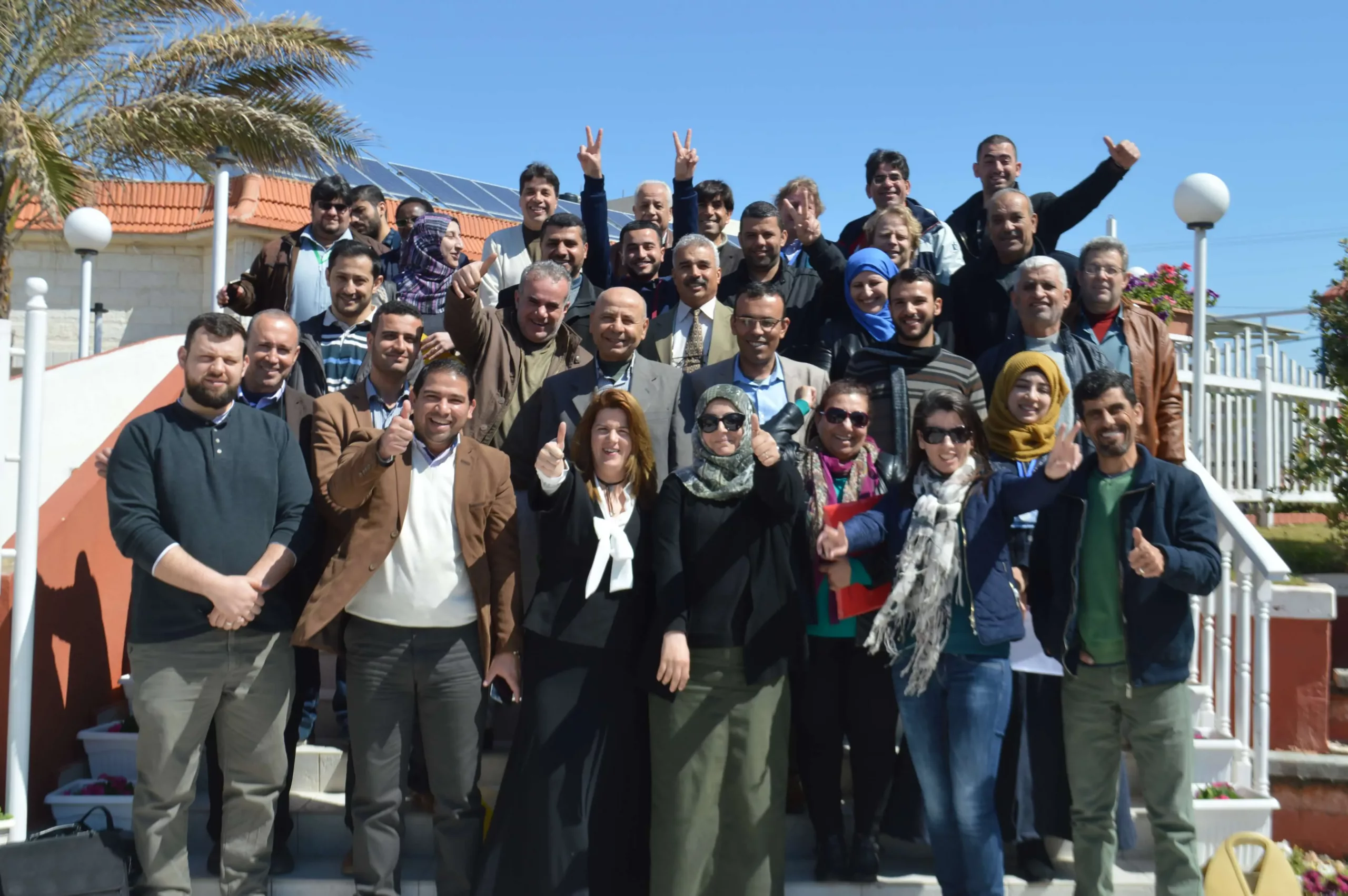- SIWI – Leading expert in water governance
- /
- Latest
- /
- Towards a more sustainable sanitation sector in Gaza
Towards a more sustainable sanitation sector in Gaza

To help Palestine improve the efficiency of its sanitation sector, SIWI’s Water Governance Team recently was invited by UNICEF to moderate a multi-stakeholder process on the Gaza strip. The training focused on the Water, Sanitation and Hygiene Bottleneck Analysis Tool (WASH BAT), developed by UNICEF with support from SIWI.
The WASH-BAT tool was created and developed by UNICEF, with inputs from SIWI and other global sector partners. Using the tool, it is possible to systematically identify factors that hinder sustainable service delivery and make it difficult to reach WASH targets. Stakeholders can then define activities to remove the root causes.
During the workshop in Gaza in early March, the 42 participants managed to identify 10 priorities to improve sector delivery. The focus was on urban sanitation, since several waste water treatment plants are now being finalized and ready to operate. The training brought together representatives from the Palestinian Water Authority, the service provider Coastal Municipal Water Utility, UNICEF, UNDP, and technical staff from municipalities, as well as local and international NGOs.
Participants commented that this may be the first time all actors were able to sit down together and have a dialogue on issues of shared interest, something that was considered very important. It was also recognized that 25 per cent of participants were women. The SIWI team actively encouraged the different organizations to meet and reorganized the seating arrangements in order to have representatives from all sectors at each table during teamwork.
In focus during the training was both accountability mapping, using the accountability triangle (draw relationship between state, users and service providers in order to understand roles and responsibilities), and the WASH-BAT tool. Participants were able to identify a) the ideal roles and responsibilities of different actors within the sector and b) the bottlenecks that hamper optimal sector development.
The prioritized activities, such as establishing a waste water tariff system, clarifying the accountability lines, implement the water reform, improve data management, focus better and more on fundraising for new infrastructure and for operation and maintenance of the existing one, increase cross-sector and inter-sectoral coordination all while taking into account gender equalities, were a result of a consensual process and were accepted by all.
The stakeholders agreed on how to concretely take forward the findings of the workshop and mobilize further action. For example, they committed to:
- Further work with some of the stakeholders around the table to detail some aspects of the action plan (such as planned sub activities and specific costs)
- Mobilize additional funding for the action plan (fundraising), which could for example include a debriefing session with donors.
- Coordinate with different stakeholders to Implement of the action plan.
- Monitor and evaluate the implementation of the action plan.
The waste water treatment/sanitation situation in Gaza was a good case-study to test the BAT implementation in fragile states and in emergency contexts.
More information can be found here: http://www.washbat.org
Most recent

Strengthening the Board of Stockholm Water Foundation (SWF)
- Stockholm Water Prize
- Stockholm Junior Water Prize
- Youth and water
- World Water Week

Water is our future – but Sweden still lacks a comprehensive strategy
- Water and the 2030 Agenda
- Groundwater
- Agriculture and water
- Cities
- Disaster risks and water

SIWI-WASH experts join IVL

SIWI Amman hosts Ghana representatives for WASH exposure visit in Jordan

Join us on a journey through 2023



